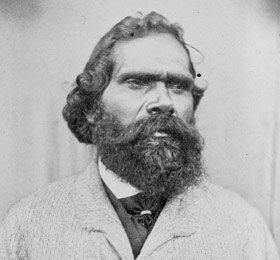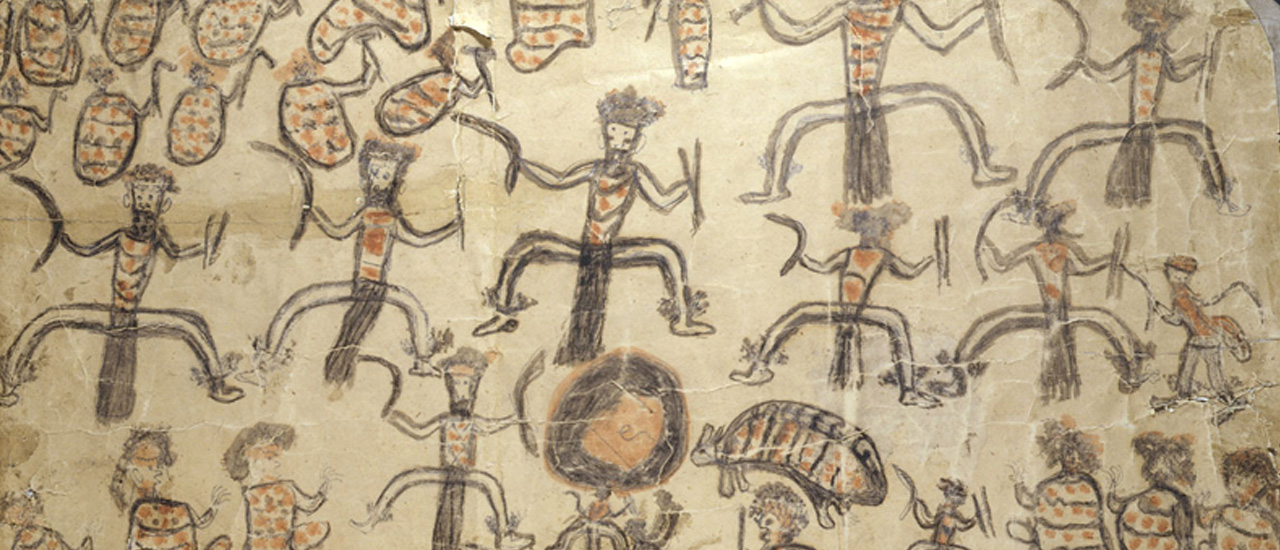Uncle Simon Wonga was a proud Wurundjeri leader who fought for his people’s rights to live on country and be in charge of their own lives.

Born near Healesville, he displayed leadership qualities from a young age and was identified as a future leader.
His father was one of the Wurundjeri men who met with John Batman and supposedly signed the now void 'Batman Treaty' – which Uncle Wonga, along with his cousin Uncle William Barak were present at.
Following the death of his father in 1846, he was was chosen to be the next Ngurungaeta, however he did not take up the role until 1851. Uncle Wonga used all the knowledge he had about European society and his friends in the settler community to fight for his people when they were being treated unfairly.


Image: Ceremony (dance) by William Barak, Culture Victoria.
He, along with his cousin, followed their songlines route in the Dandenong Ranges and settled in a traditional camping spot close to Badger Creek, the Yarra River, Watts River and Mount Riddle.
Uncle Wonga then formed a group to travel to Melbourne to request ownership on the site they had settled on. The group provided gifts to Governor Henry Barkley and Uncle Wonga delivered a strong plea in Woiwurrung language.
Because of this moving appeal, they were granted 2300 acres to use as a reserve in June 1863.


Image: Coranderrk, The Coranderrk Inquiry.
The reserve was named Coranderrk after the Christmas Bush and it quickly grew to become Victoria’s biggest reserve with 105 residents.
Coranderrk’s existence was a result of Uncle Wonga and his strong determination as well as love for his people and their survival.
You can read more about Uncle William Barak in our timeline entry on Coranderrk or on the Victorian Aboriginal Honour Roll in which he was inducted in 2014.
